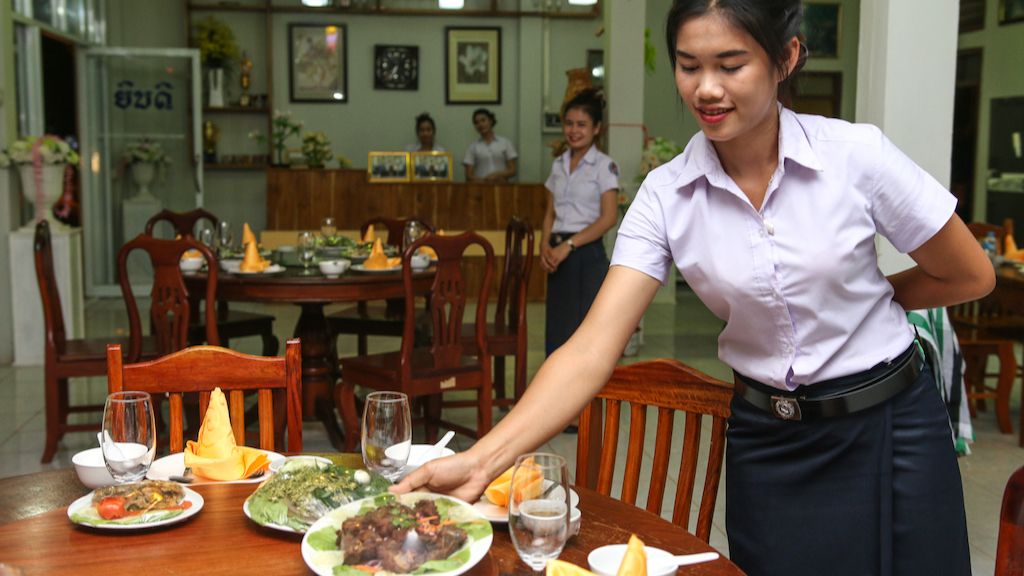
Agriculture and Tourism Key to Lao PDR's Sustainable and Shared Prosperity — ADB
VIENTIANE, LAO PEOPLE’S DEMOCRATIC REPUBLIC (17 September 2021) — Raising competitiveness and strengthening the links between agriculture and tourism will contribute to post-coronavirus disease (COVID-19) recovery and inclusive growth in the Lao People’s Democratic Republic (Lao PDR), according to a report by the Asian Development Bank (ADB) released today.
“Creating quality and productive jobs is among the top priorities of the government’s policy agenda. It has now become even more important not only for recovery from the economic fallout due to the pandemic, but also for building forward better. Putting agriculture and tourism industries at the heart of our recovery, along with strategies to strengthen sectoral synergies, offers an opportunity for kickstarting greener, more resilient economic recovery,” said Deputy Minister of Planning and Investment Phonevanh Outhavong.
The report, Developing Agriculture and Tourism for Inclusive Growth in the Lao People’s Democratic Republic, examines how higher agricultural productivity and new markets for tourism can help reduce poverty rates. Agriculture employs 60% of the Lao PDR’s labor force. Meanwhile, about 42,000 people, 62% of whom are women, were employed in tourism before COVID-19 hit.
“The Lao PDR’s natural resource endowments have supported strong economic performance over the last 3 decades, but the country’s economic and job growth have not kept apace,” said ADB Country Director for the Lao PDR Sonomi Tanaka. “Growth that generates sustainable and shared prosperity requires greater focus on the quality and quantity of jobs. Leveraging linkages between agriculture and tourism industries offers opportunities to build new and better livelihoods for a more resilient and inclusive recovery from COVID-19.”
The report finds that in 2019, tourism in the Lao PDR supported growth in livestock and fisheries industries. A significant share of tourism businesses also purchased and advertised organic vegetables. Tourism businesses could be a part of new agricultural value chains, especially for vegetables and livestock. The limited use of agricultural chemicals represents an advantage for tourism as consumers in neighboring countries consider the Lao PDR’s agricultural products to be clean and safe.
Tourism was growing fast in the Lao PDR before the pandemic. International tourist arrivals reached 4.1 million in 2018, contributing 12% of the country’s gross domestic product. However, average spending for each international tourist in the country was the lowest in Southeast Asia at $200, pointing to a need to upgrade tourism infrastructure.
COVID-19 travel disruption has forced half of the 360 tourism businesses that were surveyed to temporarily close, with 70% of workers furloughed, according to the report. An immediate response is needed to shore up the tourism sector. This can include providing financial assistance to tourism businesses, speeding up COVID-19 vaccinations, and enabling a responsible reopening of travel through transparent, effective, and clear communication of health and safety protocols.
In the longer term, the report recommends investing in agriculture and tourism, inclusive of interlinking industries such as transportation, irrigation, urban services, and digital connectivity infrastructure. Developing human capital to ensure high-quality services, expanding visa exemptions, and promoting organic food production and certification are also among the policy recommendations to increase competitiveness.
ADB is committed to achieving a prosperous, inclusive, resilient, and sustainable Asia and the Pacific, while sustaining its efforts to eradicate extreme poverty. Established in 1966, it is owned by 68 members—49 from the region.
This feature was first published on the ADB website.
